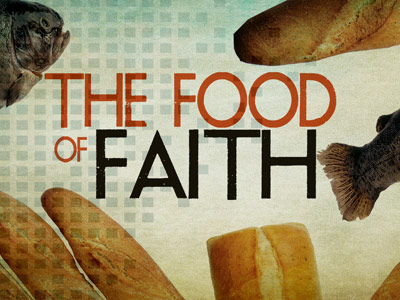-
So Let It Be Done To Me Series
Contributed by Thomas Black on Nov 28, 2017 (message contributor)
Summary: God’s covenants are irrevocable; He will not back out of his promises: he has staked his life on it.
Passage: Genesis 15:7-21
Rosee was an elderly lady who always sat in front of our family in church. She was a kindly lady and I remember as a child one occasion in particular where she gave me a butterscotch candy just before church. My understanding was that any time I asked her for one, she would give me one, what greater hope is there for a young boy? I said I remember one occasion in particular, because to my knowledge it only happened once. I remembered hearing my parents mention that afternoon that Rosee was rather poor and as a young boy I felt stricken in my conscience that I had no right to take this woman’s candy.
The result? Even though I know now that Rosee would have given me another piece, I never asked her again, because I wasn’t sure she could afford to give it to me.
Faith is sometimes a struggle; and sometimes we feel the very same way about God’s promises to us, as I felt about Rosee’s promised candy. Sometimes Satan comes and whispers into our ear telling us perhaps that God won’t be able to fulfill the deal, and so, we simply don’t ask him too; or worse, we secretly struggle in fear that he won’t.
Abram Struggled in the midst of his faith.
Turn with me to Genesis 15:7-21 and read with me starting in verse 6 the rest of this chapter.
< Read Gen 15:6ff >
Let’s step through this passage event by event, moment by moment.
V7: The very first thing God does after Abram’s faith experience in verse 6 is to remind Abram of his identity and his call on Abram’s life. Abram believed God in verse 6, and God counted it as righteousness. Now God wants to take Abram to the next level, he does so by going back to the start. At first call it wasn’t about having children, it was about the land Abram would possess.
V8: When confronted by the promise Abram asks a question, and this is important, he asks a question in faith! We know that this is a question asked in faith because it’s so close in proximity to v6 which is Focused on faith. When he says, "How may I KNOW that I’ll possess it?" He isn’t questioning God so much as he’s questioning his circumstance. He’s asking this question and searching for reassurance. The very same thing that so often we do.
Beginning in verse 9 then we have the ancient equivalent of going to the courthouse and signing a contract in front of the Notary Public.
V9-10 Perhaps you remember hearing this before, perhaps not. When a covenant was made, the process and the meaning were equally powerful. First the parties would take some animals and kill them, slice them in ½. Then they would each state the responsibilities and rights of the covenant and then hand in hand they would both walk together through the midst of the animals.
It was an incredibly sacred moment, and that for two very good reasons.
Number 1, Walking together through the bodies of the animals communicated a bond saying, we are closer now than the left and the right part of the animal. It was a FAMILY relationship being established. The idea being, "if you can’t trust family, who can you trust."
Number 2, walking together through the blood of the animals was a way of communicating the severity of the promises made. The idea being, "If I fail to live up to my end of the bargain, may I be torn in two even as this animal was torn in two.
Making a covenant in this matter was not done lightly, because it was considered rock solid. This is way beyond "Cross my heart and hope to die, stick a needle in my eye." When a covenant was made in this manner it was as good a guarantee as a guarantee gets.
I want you to consider also that when Abram asks, God condescends, He stoops down to help Abram understand. he wasn’t bound to signing on the dotted line as it were, but he was committed to making sure that Abram understood in Abram’s terms, even if that meant God had to sign a human contract.
V11: In the Bible, birds of prey are typically used to speak of the enemies of Judah, When Jesus talked about the crows devouring the seeds that fell on the path in the parable of the sower, he identified the birds as Satan himself. I don’t think we can afford to lose the imagery here either. These birds of prey were doing what every vulture or raven or whatever else kind of bird who scavenges does. They saw dead animals and they descended to devour the meat.

 Sermon Central
Sermon Central



